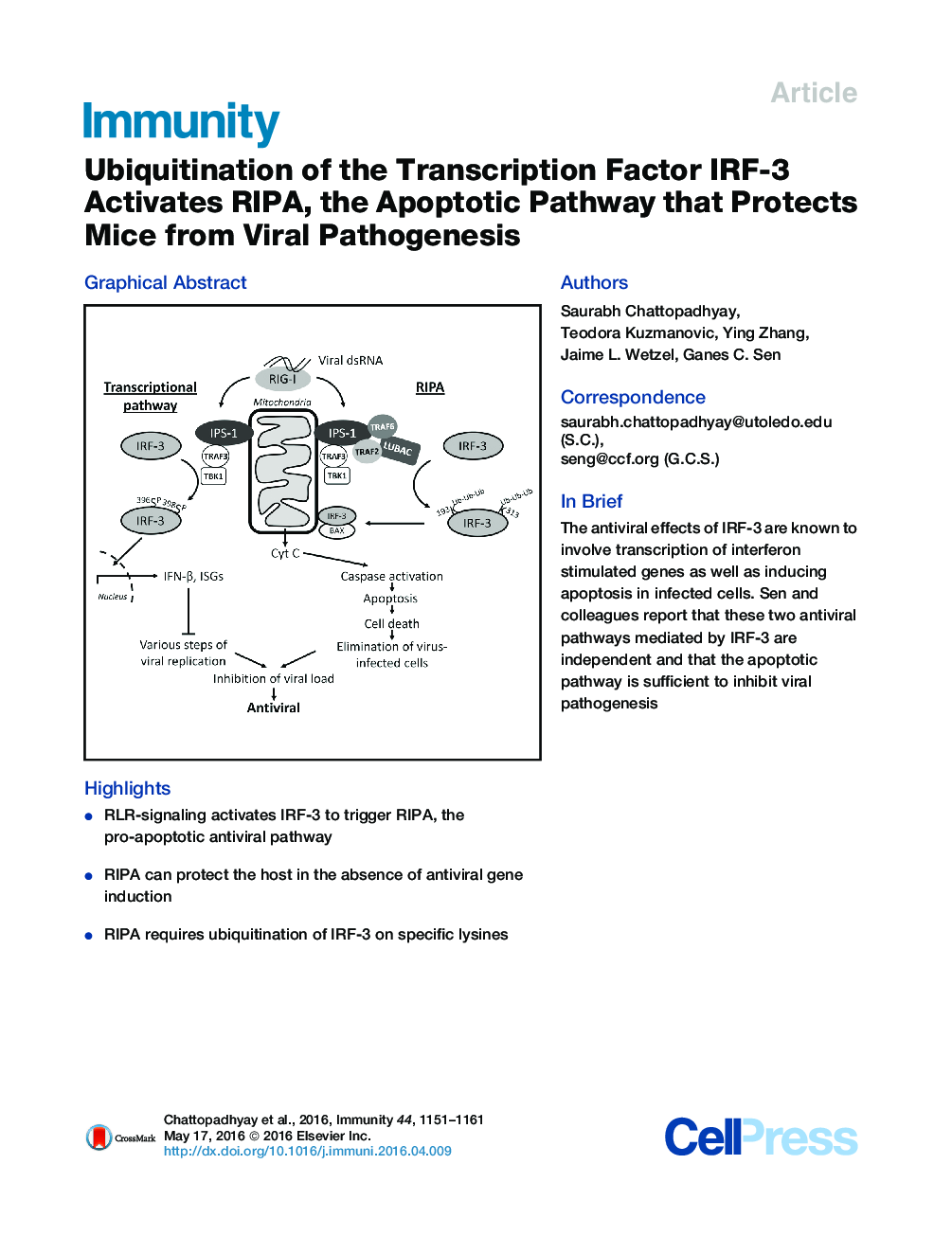| کد مقاله | کد نشریه | سال انتشار | مقاله انگلیسی | نسخه تمام متن |
|---|---|---|---|---|
| 3352883 | 1216804 | 2016 | 11 صفحه PDF | دانلود رایگان |

• RLR-signaling activates IRF-3 to trigger RIPA, the pro-apoptotic antiviral pathway
• RIPA can protect the host in the absence of antiviral gene induction
• RIPA requires ubiquitination of IRF-3 on specific lysines
SummaryThe transcription factor IRF-3 mediates cellular antiviral response by inducing the expression of interferon and other antiviral proteins. In RNA-virus infected cells, IRF-3’s transcriptional activation is triggered primarily by RIG-I-like receptors (RLR), which can also activate the RLR-induced IRF-3-mediated pathway of apoptosis (RIPA). Here, we have reported that the pathway of IRF-3 activation in RIPA was independent of and distinct from the known pathway of transcriptional activation of IRF-3. It required linear polyubiquitination of two specific lysine residues of IRF-3 by LUBAC, the linear polyubiquitinating enzyme complex, which bound IRF-3 in signal-dependent fashion. To evaluate the role of RIPA in viral pathogenesis, we engineered a genetically targeted mouse, which expressed a mutant IRF-3 that was RIPA-competent but transcriptionally inert; this single-action IRF-3 could protect mice from lethal viral infection. Our observations indicated that IRF-3-mediated apoptosis of virus-infected cells could be an effective antiviral mechanism, without expression of the interferon-stimulated genes.
Graphical AbstractFigure optionsDownload high-quality image (129 K)Download as PowerPoint slide
Journal: - Volume 44, Issue 5, 17 May 2016, Pages 1151–1161